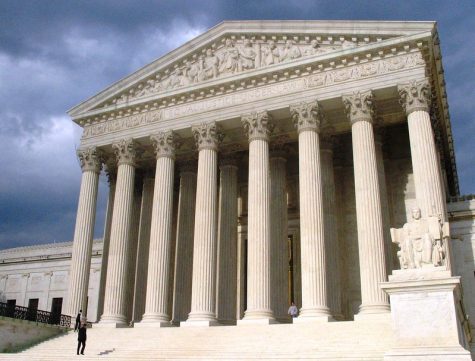How Corruption Led to a Supreme Court That Wants to Move Backwards
October 13, 2021
Opinion: Supreme Court Decisions

It isn’t difficult to visualize the corruption that led to our current Supreme Court Justices. In 2016, under the Obama administration, Senator Mitch McConnell blocked Obama’s nominee for Supreme Court under the reasoning that because it was an election year, it wouldn’t be fair to allow the sitting president to determine the future of the country when he is already on his way out. “The American people may well elect a president who decides to nominate Judge Garland for Senate consideration,” he said. “The next president may also nominate someone very different. Either way, our view is this: Give the people a voice.”
At that time, Obama had roughly ten months left of his presidency. This left the decision to the hands of Obama’s successor, former President Donald Trump. During his presidency, Donald Trump went on to appoint three separate justices during his four-year term. The most obvious issue is with the third justice, who was appointed by the same senate about 46 days before the 2020 election began. Trump’s ability to replace one-third of the Supreme Court’s Justices granted him a secure legacy, we will see the effects of this decision for many years to come.
In the coming weeks, we will begin to see the first true effects of these decisions. The Supreme Court has started a new term, and for the first time in over a year, will be making decisions on the issues of abortion, gun control, and religious freedom. These decisions will, whether we like it or not, affect each and every one of us. The Court must first address Mississippi’s new law, which directly challenges the precedent set by the case of Row v. Wade. If the court does not decide to go by precedent and instead overturns the decision of Row v. Wade, then we may see some serious changes in the perception of abortion around the country. It will become increasingly difficult to seek out an abortion without risking the job of the doctor who is performing the surgery.
On November 3, the Supreme Court will hear a landmark case of the New York State Rifle & Pistol Association v. Bruen. According to New York state Attorney General Letitia James, the case will establish an “arguable and articulable—rather than merely speculative or specious—need for self-defense.” So far it is unclear what opinion the Supreme Court will hold on this stance, but considering that The Second US Circuit Court of Appeals held that New York’s law does not violate the Second Amendment, it seems that this particular case could go in either direction.
The court will also be facing a case of “religious liberty” in the form of schooling. Currently, in rural areas of the country, many families live in an area that does not have a public school close enough to them. For these families, the government provides vouchers so that the children can be sent to a private school. However, these vouchers draw the line at schools that specifically teach through the lens of a certain religion. The suit insists that this is religious discrimination, and the court will be forced to make a decision based on whether or not schools that teach on the basis of religion should be considered equivalent to public schools.
Some of the more interesting cases that will come up in the coming months include those involving the death penalty, CIA detention facilities, and FBI surveillance.




Yajaira Martinez • Oct 24, 2021 at 11:38 am
Is wonderful and I am glad the supreme court is taking actions. I look forward for a better country and I know the supreme court will do its best to bring justice.
arianna • Jan 18, 2022 at 10:31 am
agree.